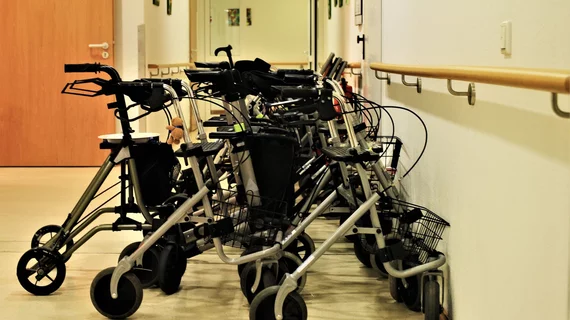Lawsuit filed in response to $43B nursing home staffing rule
The nursing home industry in Texas is suing the Biden administration over a Centers for Medicare and Medicaid (CMS) final rule that mandates minimum staffing at nursing homes in an effort to improve care quality.
The Texas Health Care Association and the American Health Care Association have joined operators of multiple nursing facilities in the complaint, filed in the Northern District of Texas. The plaintiffs are seeking to block the new rule, which was finalized on May 10, arguing that CMS has overstepped the bounds of its authority.
The new requirement from CMS would force nursing homes to bolster staff, requiring care to be provided to residents by nurses for 3.48 hours per resident each day (HPRD). The rule also requires a minimum level of care from an RN at 0.55 HPRD. In addition, staffing must be at a level where nurses aids can provide direct care 2.45 HPRD.
Each facility must also be staffed with an RN onsite at all times. The new requirements phase in over time, and nursing facilities must ultimately meet the requirements by May 2027. Nursing homes in rural areas have until May 2029.
There are additional requirements laid out as well, including the need for facilities to use evidence-based measures for staffing and develop plans for recruitment. There are ways to bypass the requirements in times of hardship.
In a statement responding to the rule, Mark Parkinson, president and CEO of American Health Care Association, lamented that residents will be displaced as facilities are unable to take on the extra cost.
"It is unconscionable that the Administration is finalizing this rule given our nation's changing demographics and growing caregiver shortage. Issuing a final rule that demands hundreds of thousands of additional caregivers when there's a nationwide shortfall of nurses just creates an impossible task for providers. This unfunded mandate doesn't magically solve the nursing crisis,” Parkinson said.
He added that the new rule is a “20th Century solution for a 21st Century problem” and called the requirements “out of touch and out of reach.”
The American Health Care Association and co-plaintiffs are arguing that the rule is a violation of the Administrative Procedure Act, which sets standards for how regulatory bodies can exercise their authority.
According to budget estimates from the federal government, meeting the requirements of the new rule will cost Medicare and nursing homes $43 billion over the next decade.
The CMS rule only applies to those facilities that receive federal funding through Medicaid and Medicare. The newly filed lawsuit has yet to be reviewed by the courts.

